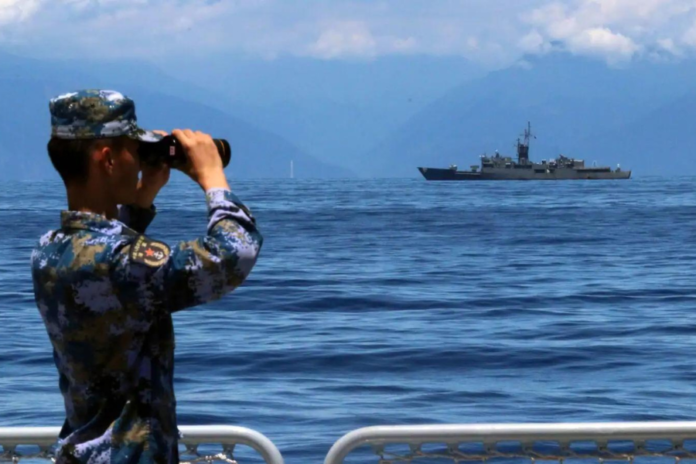In a furious and largely anticipated response to a visit by Taiwan’s Vice President William Lai to the United States (US), China’s military – the People’s Liberation Army (PLA) – started war games around the island nation on Saturday.
In an official statement, the Chinese government described the PLA’s military drills as a “serious warning” to “separatist forces” a term often used by officials in China while referring to Taiwan.
The PLA exercises drew criticism from Taiwan. Lai, the front-runner for the presidency of Taiwan in the upcoming elections, returned to Taiwan on Friday after visiting the United States (US), where he had formally stopped over while traveling to and from Paraguay but gave speeches while there.
China regards democratically run Taiwan as a breakaway province.
In a brief statement, the People’s Liberation Army’s (PLA) Eastern Theatre Command, which is in charge of the region surrounding Taiwan, announced that it was conducting joint naval and air combat readiness patrols all around the island.
Along with joint training and exercises for the navy and air forces, it claimed to be testing the forces’ “actual combat capabilities” by focusing on issues like ship-aircraft coordination and gaining control.
“This is a serious warning against Taiwan independence separatist forces colluding with external forces to provoke,” the PLA statement added.
The drills were fiercely denounced by Taiwan’s defence ministry, which asserted that it will send the necessary forces to respond, is capable of doing so, and is confident in its ability to maintain national security.
“The launch of the military exercise this time not only does not help peace and stability in the Taiwan Strait, but also highlights (China’s) militaristic mentality,” the ministry said in a statement.
It was unclear right away how extensive Saturday’s operations were.
Defence attachés and analysts from the region were closely examining the scope and intensity of the exercises in an effort to compare them to intense war games held by China in August 2022 and April of this year.
Following Nancy Pelosi’s visit to Taipei last year, the Chinese military conducted naval drills all around the island and launched missiles over Taiwan, some of which landed in Japan’s exclusive economic zone. Taiwanese officials described these actions as being in preparation for a full invasion.
The April drills were smaller but included full combat operations by China’s two aircraft carriers, some off the island’s Pacific coast, after President Tsai Ing-wen met House Speaker Kevin McCarthy during a stopover in California.
Taiwanese officials had warned that China was likely to conduct military drills this week close to the island, using Lai’s stops there as an excuse to terrorise people ahead of the presidential election of the following year and instill “fear of war” in them.
Lai’s prior remarks that he was a “practical worker for Taiwan independence” have particularly offended China. On the campaign path, he constantly offered to hold things as they are and pledged to maintain the status quo.
The Taiwan Work Office of China’s ruling Communist Party claimed Lai was “shamelessly” attempting to “rely on the United States to seek independence” just before the military made its declaration.
According to the report, Lai has “stubbornly adhered to the Taiwan independence stance,” and his visits to the United States were “a disguise he used to sell out the interests of Taiwan in order to seek gains in the local election through dishonest moves.”
Lai went to Paraguay to attend the president’s inauguration. Only 13 countries, including this landlocked South American republic, have formal diplomatic relations with Taiwan.
Lai shared images of himself in the nation’s capital Asuncion mingling with King Felipe VI of Spain, Brazilian President Luiz Inacio Lula da Silva, and U.S. Interior Secretary Deb Haaland.
In contrast to the majority of nations, the United States is Taiwan’s strongest foreign ally and is obligated by international law to give the island the tools to defend itself.
Over the past three years, China has increased its military pressure on Taiwan, notably by stationing planes and warships close to the island.



